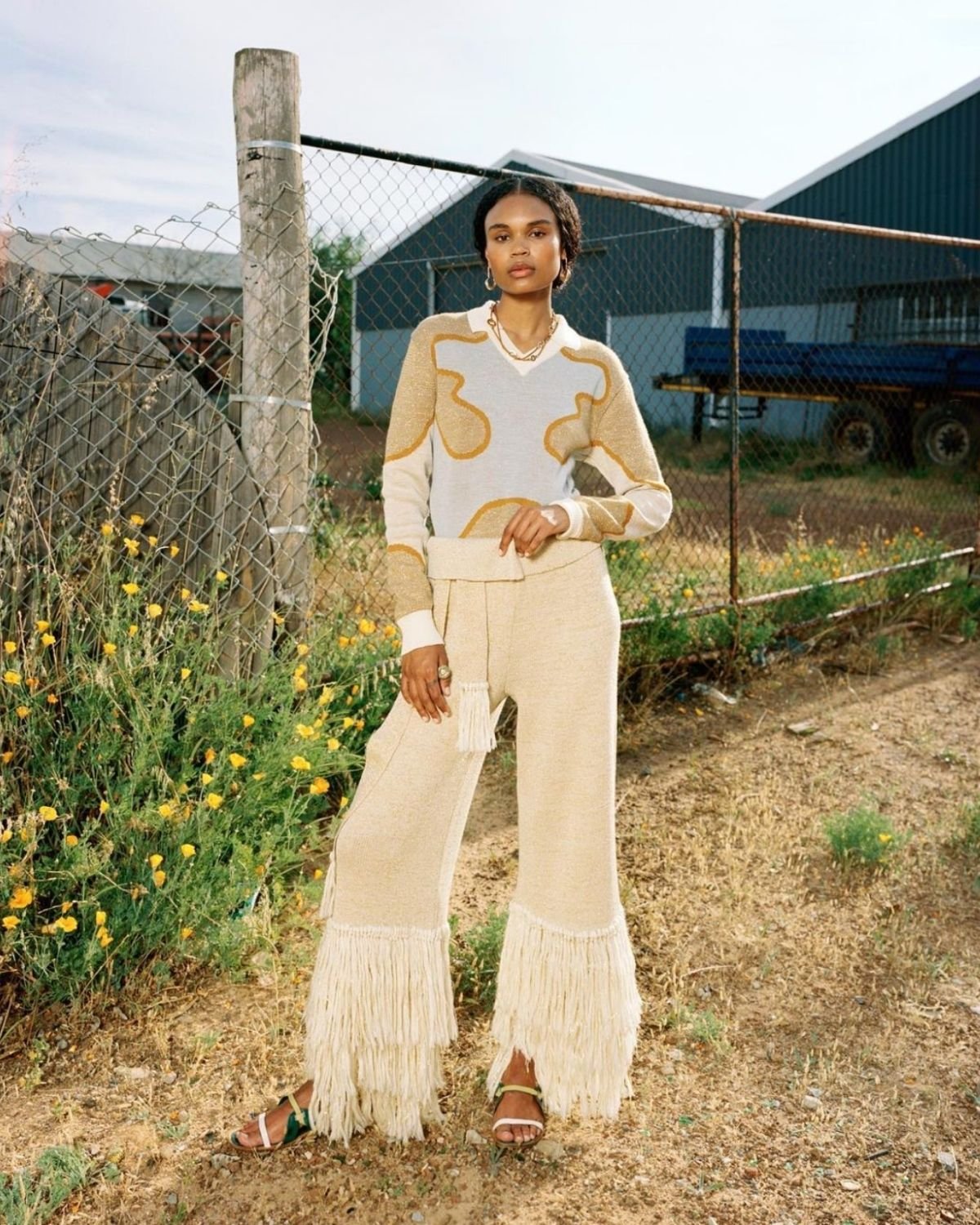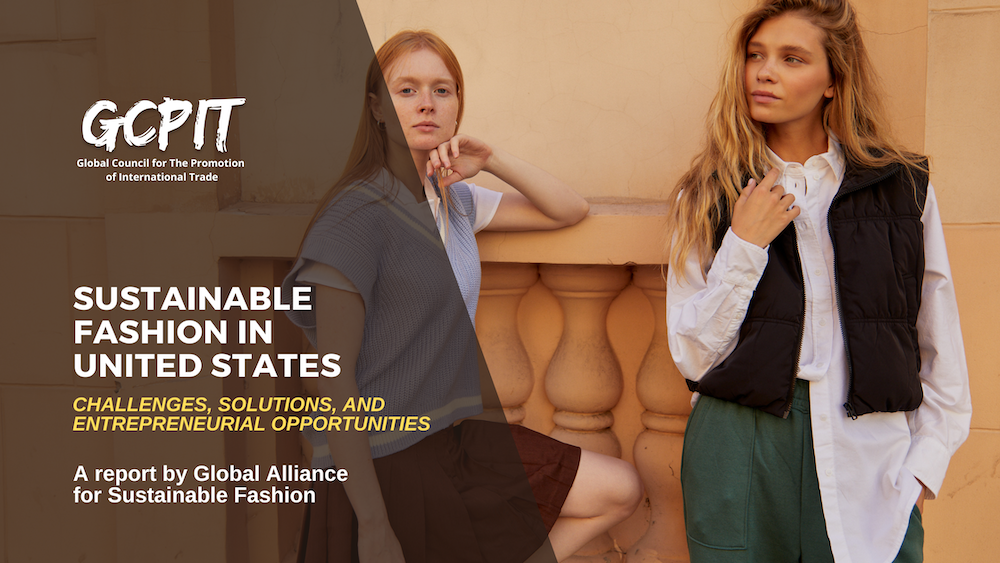Sustaining Neighborhood Cape Town Sustainable Fashion for a Greener Future
Stay Ahead of the Contour by Discovering Innovative Style Patterns
In a sector as dynamic as style, staying ahead includes greater than just following present trends-- it requires an expedition of innovation. Smart fabrics, for example, are changing garments into useful masterpieces, while 3D printing is reinventing style procedures with its adjustable, waste-reducing capacities. As sustainability comes to be a cornerstone, advancements like eco-friendly products and circular style practices are reshaping environmental obligation - Cape Town Sustainable Fashion. In addition, the convergence of innovation and style proclaims a brand-new era of customer interaction. Exactly how, then, can these emerging trends redefine the future of fashion, and what ramifications do they hold for brands looking for to thrive in this progressing landscape?

Welcoming Smart Textiles
In the last few years, the garment industry has seen a transformative change with the assimilation of wise textiles, an advanced technology that blends innovation with textile. This evolution stands for not only a fusion of aesthetics and functionality but additionally a considerable jump in the direction of sustainability and personalization in vogue. Smart fabrics, additionally called e-textiles, installed sophisticated electronics such as sensors and conductive threads within the textile, enabling garments to interact with the wearer or the environment.
These textiles are developed to keep an eye on physical specifications, such as heart price or body temperature, supplying real-time health and wellness analytics. Past wellness applications, smart fabrics are additionally being utilized for adaptive clothes, which can transform color or pattern in action to environmental stimulations, thus using a dynamic style experience.
Additionally, the growth of energy-harvesting fabrics that produce power from movement or sunshine is leading the way for self-sufficient wearable technology. This advancement is attracting eco conscious customers and designers intending to lower the environmental impact of fashion. As research and advancement in this field development, clever fabrics are anticipated to come to be significantly common, improving the landscape of contemporary style with their multifunctional abilities.
The Surge of 3D Printing
Changing the manufacturing landscape, 3D printing has arised as a game-changer in the apparel industry. This sophisticated innovation has enabled developers to press the limits of creativity, producing intricate and customized garments that were formerly unbelievable. By leveraging digital layout and additive manufacturing, 3D printing facilitates the development of complicated geometries and patterns, allowing developers to experiment with new appearances and frameworks.
A remarkable advantage of 3D printing in fashion is its ability to produce on-demand, decreasing waste and reducing stock needs. This efficiency not only maximizes manufacturing procedures however also enables rapid prototyping, making it possible for designers to bring their visions to life in a shorter timeframe. In addition, 3D printing supports customization to a level unmatched by standard techniques, offering distinct designs and individualized fits customized to individual customer choices.
The surge of 3D printing has actually likewise equalized style, making it accessible to emerging designers who can currently make high-grade pieces without significant economic investment in conventional production infrastructure. As modern technology proceeds to advance, the fashion business is positioned to harness the full capacity of 3D printing, exploring brand-new materials and methods that will undoubtedly redefine how style is conceived and generated.
Sustainable Style Advancements
As the fashion business faces the pressing need for ecological responsibility, lasting fashion developments have emerged at the this forefront of transformative adjustment. The expanding awareness of ecological influence has fueled a shift towards even more eco-conscious techniques and products. Developers and brands are currently prioritizing sustainability, incorporating approaches that minimize waste and minimize carbon impacts.
One significant development is the surge of round style, which stresses recycling and upcycling to prolong the lifecycle of garments. This method not just minimizes waste yet also encourages customers to adopt an extra mindful method to apparel intake.
An article source additional development depends on the adoption of innovative dyeing strategies that utilize all-natural dyes or waterless processes, thus minimizing the huge amounts of water and chemicals commonly utilized in fabric dyeing. Additionally, innovations in biotechnology have led to the development of lab-grown natural leather and materials, using cruelty-free and ecologically friendly alternatives to traditional products. Via these introducing efforts, the style industry is making purposeful strides in the direction of a much more sustainable future.

Tech-Integrated Apparel
Tech-integrated garments stands for a revolutionary combination of fashion and modern technology, reshaping exactly how individuals connect with their garments. This cutting-edge domain name is marked by the addition of wise fabrics and ingrained digital elements, improving both performance and visual allure. From physical fitness trackers embedded in sportswear to warmed jackets controlled using smart device apps, tech-integrated clothing supplies customers extraordinary benefit and adaptability.
Introducing brands are driving this fad, concentrating on creating garments that react to environmental stimuli or user commands. As an example, some garments can change shade or pattern in feedback to temperature level shifts, while others include biometric sensing units to monitor wellness metrics like heart rate or anxiety levels. The seamless combination of technology into textiles additionally expands to environmental sustainability, with efforts to develop self-cleaning textiles or garments that adapt to weather problems, hence decreasing the requirement for multiple layers.
Moreover, the development of wearable technology is not simply limited to garments but includes accessories like watches and eyeglasses, more widening the scope of tech-integrated style. As the industry remains to introduce, the capacity for customization and customization in apparel grows, offering consumers unique, tech-enhanced fashion experiences that deal with their specific demands and preferences.
Future of Virtual Fashion
In the last few years, the future of digital style has emerged as a transformative force within the industry, leveraging improvements in electronic technology to redefine just how fashion is created, experienced, and taken in. By integrating enhanced reality (AR), online truth (VR), and 3D layout tools, developers can now craft immersive and interactive experiences that go beyond typical style boundaries. Online fashion enables the production of garments that exist exclusively in electronic environments, using endless opportunities for development without the restrictions of physical production.
This digital change not only presents possibilities for creative expression but likewise addresses sustainability concerns fundamental in traditional style techniques. Cape Town Sustainable Fashion. By getting rid of the requirement for physical resources, virtual fashion lowers waste and decreases carbon footprints. Furthermore, the surge of online fashion lines up with the enhancing consumer need for special and individualized experiences, as online garments can be tailored and tailored to specific preferences with ease

Conclusion
The fashion sector's future depend on the combination of lasting practices and ingenious modern technologies - Cape Town Sustainable Fashion. Smart textiles and tech-integrated clothing you can find out more are enhancing functionality, while 3D printing uses possibilities for modification and waste decrease. Lasting style, with round methods and environment-friendly materials, demonstrates a commitment to ecological stewardship. In addition, online style is positioned to redefine customer interactions. Adjusting to these trends is important for brand names looking for to continue to be appropriate and affordable in this rapidly progressing landscape.
In recent years, the fashion sector has actually observed a transformative change with the combination of wise textiles, a cutting-edge development that mixes technology with fabric.As the style industry grapples with the pushing requirement for environmental responsibility, lasting fashion innovations have actually emerged at the leading edge of transformative change.In current years, the future of online style has actually arised as a transformative pressure within the sector, leveraging improvements in digital technology to redefine how style is produced, experienced, and consumed. The increase of online fashion aligns with the raising consumer need for customized and unique experiences, as online garments can be tailored and customized to private preferences with simplicity.
The style industry's future lies in the assimilation of lasting methods and innovative technologies.